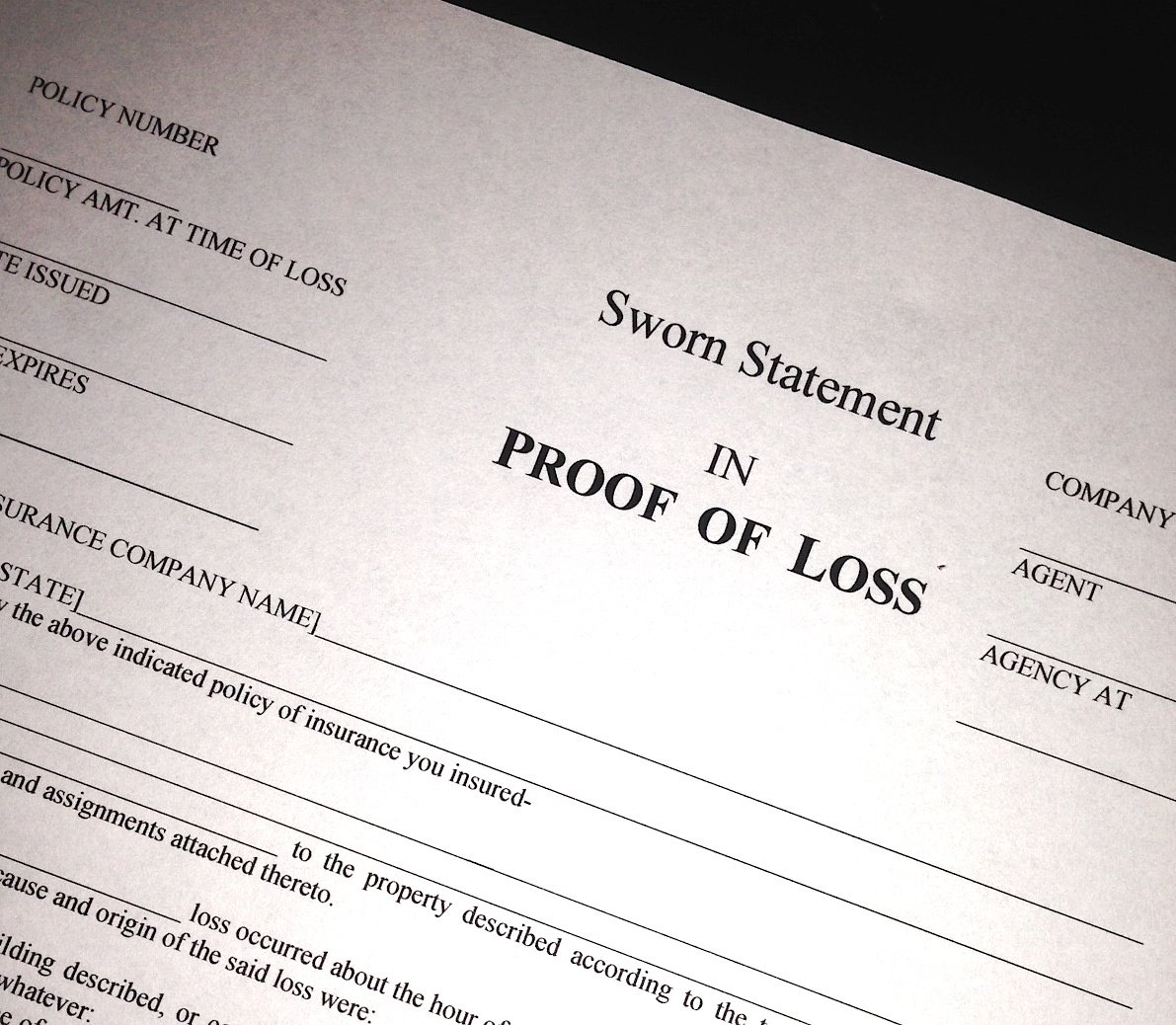

It takes a lot of effort to rebuild your home when it’s damaged. Add in a pile of insurance claim paperwork, and the overall burden can be overwhelming. Insurance companies want you to provide estimates, receipts, property inventories, and most importantly, they want your Proof of Loss. If you don't know what a Proof of Loss is, definitely keep reading.
A Sworn Statement in Proof of Loss outlines the basic details of your property damage claim and serves as a cover document for your supporting claim materials and documentation. Some homeowners policies list it as a requirement under "Section l Conditions: Duties After a Loss.” Your insurance company's adjuster can give you a Proof of Loss form and explain what to do, but sometimes that doesn't happen.
Your policy gives your insurance company the right to request a Proof of Loss on any property claim, although they often decide they don't want or need one. The requirement is generally enforced on a claim-by-claim basis, or at various thresholds, like a:
The traditional Proof of Loss form is a one-page document that can prompt these common Proof of Loss mistakes.
Your policy may be the perfect blend of boring and confusing, but reading it takes some of the mystery out of the claim handling process. The “Duties After a Loss” section is particularly important when you plan to file a property damage insurance claim. It explains the Proof of Loss requirements, as well as the other important things you need to do to present and settle your claim successfully.
Some insurance policies require your Proof of Loss submission within a specified number of days after the date of loss. Others require one only after they ask for it. Either way, be sure you're able to prove your loss on their deadline. Missing it can cause your insurance company to delay or deny your claim.
Your policy certainly is central is what your insurance company owes for your damages and by when. Equally important, though, are state laws. These, at times, override policy provisions. Failing to know which laws bear on your claim leaves you vulnerable to a host of issues, including mistreatment and a low settlement.
Not Asking for an Extension When You Need One
The Proof of Loss deadline can come up quickly, especially when you have so many other tasks to complete. You can minimize the backlash of missing this important deadline by requesting an extension from your carrier, in writing, that explains the hardships involved.
When a notary witnesses your signature and affixes a seal to your form, that simple act transforms your document into the Sworn Statement in Proof of Loss required by your policy. Even if your Proof of Loss is flawlessly prepared, your insurance company may reject it if it’s not notarized.
Your Proof of Loss is your insurance company’s simple way of getting you to swear that your version of the events are true. When you read your policy conditions, you also realize that they want your claim documentation as well. Estimates, inventories, receipts, etc. that prove your Proof of Loss statements are true.
Call us 24 hours a day at (866) 443-5127 to schedule an appointment or
please fill out a Free Claim Review to see how we can help.

Thank you for visiting us. My name is David Miller, and I know what it means to have to fight with your insurance carrier just to get fair payment for your property damage claim. My family suffered a total loss house fire that took nearly two very stressful years to settle. Since, I combined my experience in construction with my expertise in contract language to create Miller Public Adjusters. We work exclusively for policyholders. Please feel free to comment, ask questions, and let us know how we can help.